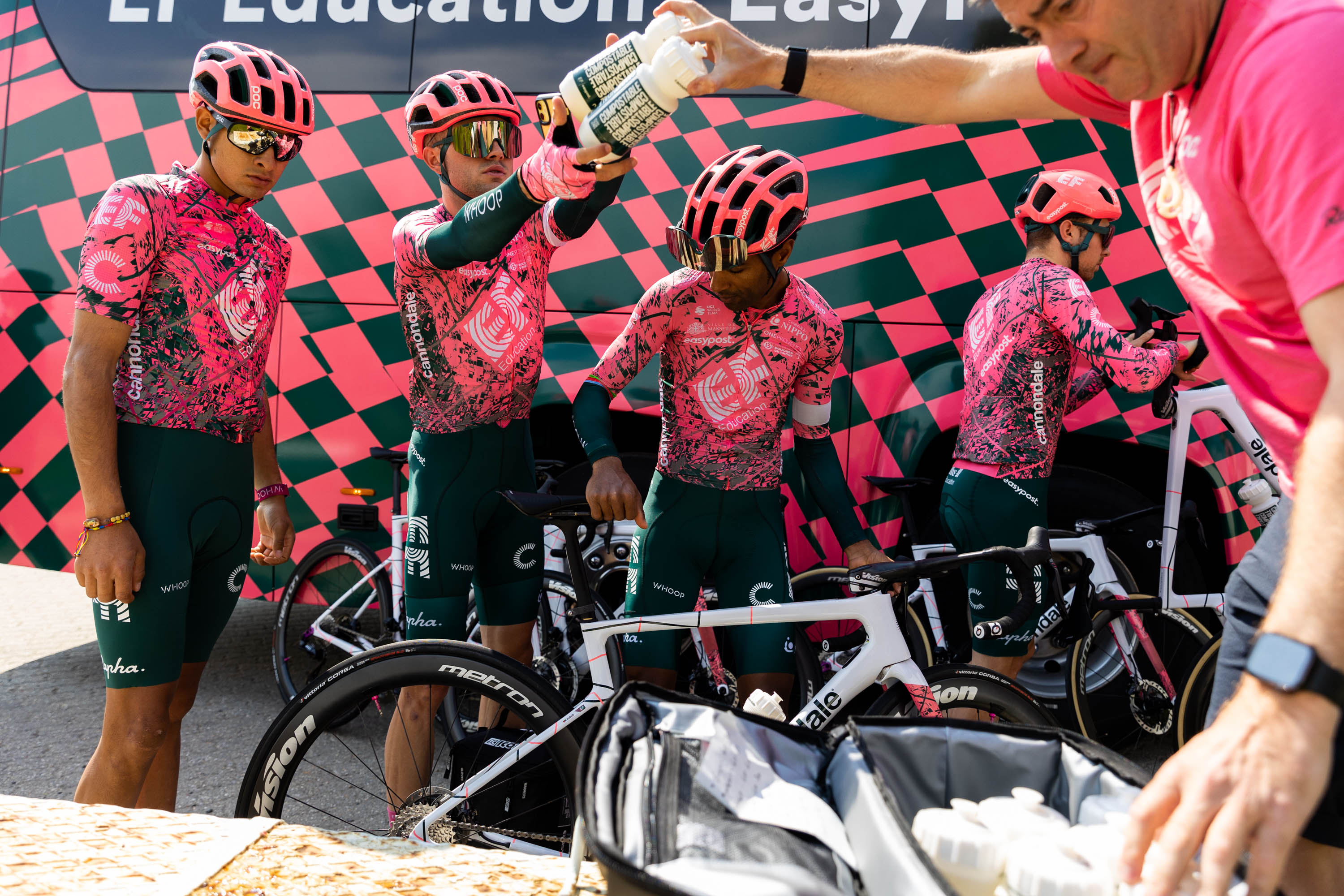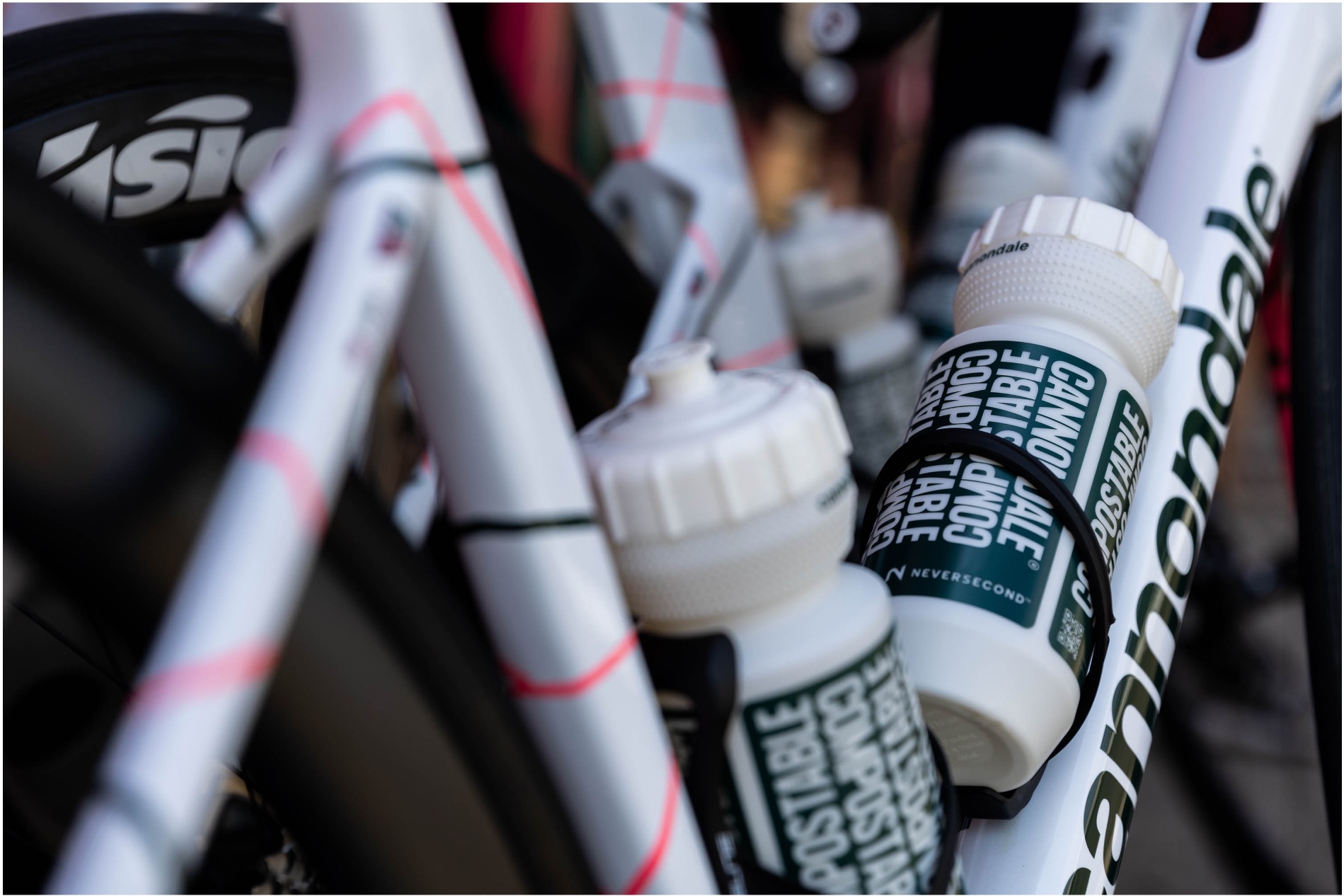Compostable bottles to be used by EF Education-EasyPost riders at Giro d'Italia
EF Education-EasyPost, led by Britain's Hugh Carthy, will start using bidons immediately in effort to combat plastic waste

Hugh Carthy and his fellow EF Education-EasyPost riders at the Giro d'Italia will be using 100-per cent compostable water bottles in an effort to cut down on the environmental impact of professional cycling.
The move, which is a first for the pro peloton, comes a year after rules penalising littering in the peloton attracted strong criticism among riders and threatened to overshadow the 2021 Giro.
The bottles supplied by the team's bike manufacturer Cannondale are made from plant-derived materials and are designed to decompose within as little as three months in the right conditions.
According to Cannondale, every year 630,000 bottles are used in the pro peloton, many of them discarded at the side of the road to be collected as souvenirs by fans, or ending up in landfill, with EF-EasyPost alone getting through 34,000.
Both the EF-EasyPost men's and women's teams will begin using the bottles immediately, starting at the Giro d'Italia which gets underway in Budapest on Friday.
British rider Carthy, who finished eighth at the Giro last year, is the main GC contender for EF Education-EasyPost, which has also rolled out a special kit for the race.
UCI rules on bidon littering
The environmental impact of cycling has become a leading issue in recent years, with the organisers of last year's UCI Road World Championships publishing a detailed sustainability report in November. Similar concerns were part of the reasoning behind the UCI bringing in strict rules penalising riders for discarding bidons outside of designated zones in April last year, although safety concerns were also a major factor.
Get The Leadout Newsletter
The latest race content, interviews, features, reviews and expert buying guides, direct to your inbox!
The rules were subsequently softened during last year's Giro d'Italia after a strong backlash from riders such as Thomas De Gendt to the ejections of Michael Schar and Letizia Borghesi from the Tour of Flanders, but riders are still expected to discard bottles in specific waste collection zones.

How it works
Cannondale says: "The bite valve, cap and bottle body are completely compostable, free from plasticizers, heavy metals and BPAs [industrial chemicals officially called bisphenol A], making it both human-friendly and eco-friendly. The bottle will decompose in three months, as green waste, once exposed to micro-organisms, heat and humidity."
Although the company says the bottle will disintegrate within three months in an industrial compost system, it is likely to take closer to a year in a home compost system.
The bottle itself is a simple white and green design to match the white Cannondale SuperSix EVO bikes EF-EasyPost will be using at the Giro.
There are no current plans to put the bottles on sale to the public, but if ever they do be made available, we'll be sure to consider them for our guide to the best water bottles for cycling.
Ben has been a sports journalist for 16 years, covering everything from park football to the Olympic Games. As well as cycling, his passions include podcasts, tennis and speaking enough Italian to get by on his snowboarding trips to the Dolomites. A DIY rider who is almost as happy in the toolbox as he is in the saddle, he is still trying to emulate the feelings he experienced as a nine-year-old on his first Peugeot racer – he couldn’t fathom the down-tube friction shifters then and he’s still wrestling with groupsets now. When he isn’t making a beeline for the nearest Chiltern hill, he is probably tinkering or teaching his kids how to clean a bike properly. He rides a heavily modified 1980 Peugeot PVN10 Super Competition (steel is real) when the road is smooth and dry, and a BMC Alpenchallenge when it’s not.